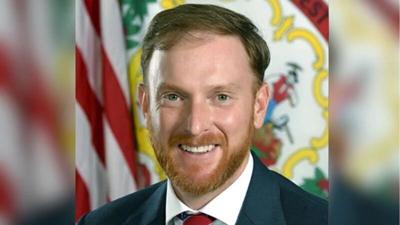
West Virginia Attorney General J.B. McCuskey
CHARLESTON – Here’s a look at some issues recently handled by West Virginia Attorney General J.B. McCuskey’s office:
McCuskey has joined a bipartisan coalition of 37 AGs urging Instagram to make immediate changes to its newly implemented location-sharing feature.
In a letter to Instagram Head Adam Mosseri, the AGs outlined serious public safety and data privacy concerns about the change, which allows users’ precise locations to be displayed on a map.
The coalition emphasized the heightened dangers for vulnerable users, including children and survivors of domestic violence, noting that such tools can be exploited by predators, stalkers, and other malicious actors.
“As attorneys general, we recognize the potential danger caused by the new location-sharing feature on Instagram, that is why we are asking Instagram to take action,” McCuskey said. “In the meantime, I urge people who are on Instagram, especially parents who have children with accounts, to investigate the location-sharing feature and proactively protect yourself and your kids.”
The letter calls on Instagram to ensure minors cannot enable location-sharing features; send a clear alert to all adult users explaining the feature, outlining its risks, and providing full disclosure of how Instagram will use users’ location data; and, for adults who choose to opt in, provide a simple, easy-to-access control to disable location sharing at any time.
McCuskey is leading a coalition of 19 states in filing an amicus brief with the U.S. Supreme Court supporting Second Amendment freedoms, specifically to allow individuals ages 18-20 to legally purchase firearms.
Current federal law prohibits the sale of handguns to people under 21 years old. Joshua McCoy and other young adults have challenged this law, saying it violates their Second Amendment rights. The case – McCoy v. Bureau of Alcohol, Tobacco, Firearms and Explosives – has been heard by the lower courts, and West Virginia is urging the Supreme Court of the United States to hear it and decide whether individuals’ rights to bear arms include the right to purchase them.
“You can’t separate the right to own guns from the right to buy them,” McCuskey said. “Different courts have reached different conclusions on this issue, so it’s time for the Supreme Court to answer these questions once and for all.
“If young adults ages 18 to 20 can vote, serve in the military, be tried as adults in criminal court or get married, they should be able to purchase a handgun.”
The coalition is asking the Supreme Court to agree to hear the case, concluding the brief with, “Even the Government concedes that Plaintiffs ‘are all otherwise qualified to purchase handguns’ were it not for their ages … They should not be forced to wait until some later day to vindicate their rights.”
McCuskey is leading a bipartisan amicus brief in the U.S. Supreme Court in support of a veteran who was wounded in Afghanistan by a private contractor and is now fighting to hold the contracting company accountable.
Winston Hencely was injured when a suicide bomb was detonated during a Veterans Day 5k run. The explosion killed 5 people and injured 16, including Hencely. The suicide vest was set off by a former Taliban insurgent who was working as a contractor for Fluor Corporation.
Fluor hired the former insurgent, Ahmad Nayeb, in 2011 to work at Bagram Airfield in Afghanistan. According to a lawsuit filed by Hencely, the company failed to properly supervise Nayeb, which allowed him to use parts from their vehicle yard to make a suicide bomb vest. The lack of adequate supervision gave Nayeb the opportunity to walk unsupervised to another part of the base, where he discharged the bomb during the 5k run.
Hencely’s lawsuit against Fluor was filed in South Carolina for negligent hiring and supervision. Lower courts dismissed the case, ruling that federal contractors should be protected from lawsuits, just like the federal government, during times of combat.
The lower courts cited the Federal Tort Claims Act, which typically applies only to government employees, not private contractors. The courts extended this protection to Fluor. The brief argues the lower court effectively rewrote federal law by extending protections that Congress specifically chose not to give to private contractors. This undermines states' traditional authority to hold wrongdoers accountable and compensate victims through their tort laws.
“The lower courts got it wrong in this case. If our soldiers are killed or wounded by private contractors, they need to be held accountable,” McCuskey said. “West Virginia and our partner states have come together to help this brave soldier get the justice he deserves.”
If allowed to stand, this ruling could shield private military contractors from accountability in federal courts nationwide, potentially leaving injured service members and civilians with no legal recourse when contractors act negligently.
The coalition is asking the Supreme Court to reverse the lower court’s decision and allow Hencely’s lawsuit against Fluor to move forward.
Alabama, Arkansas, Delaware, Florida, Idaho, Indiana, Kansas, Louisiana, Minnesota, Mississippi, Montana, Nebraska, New Mexico, North Carolina, Oklahoma, Oregon, South Carolina, South Dakota and Texas joined the West Virginia-led brief.







